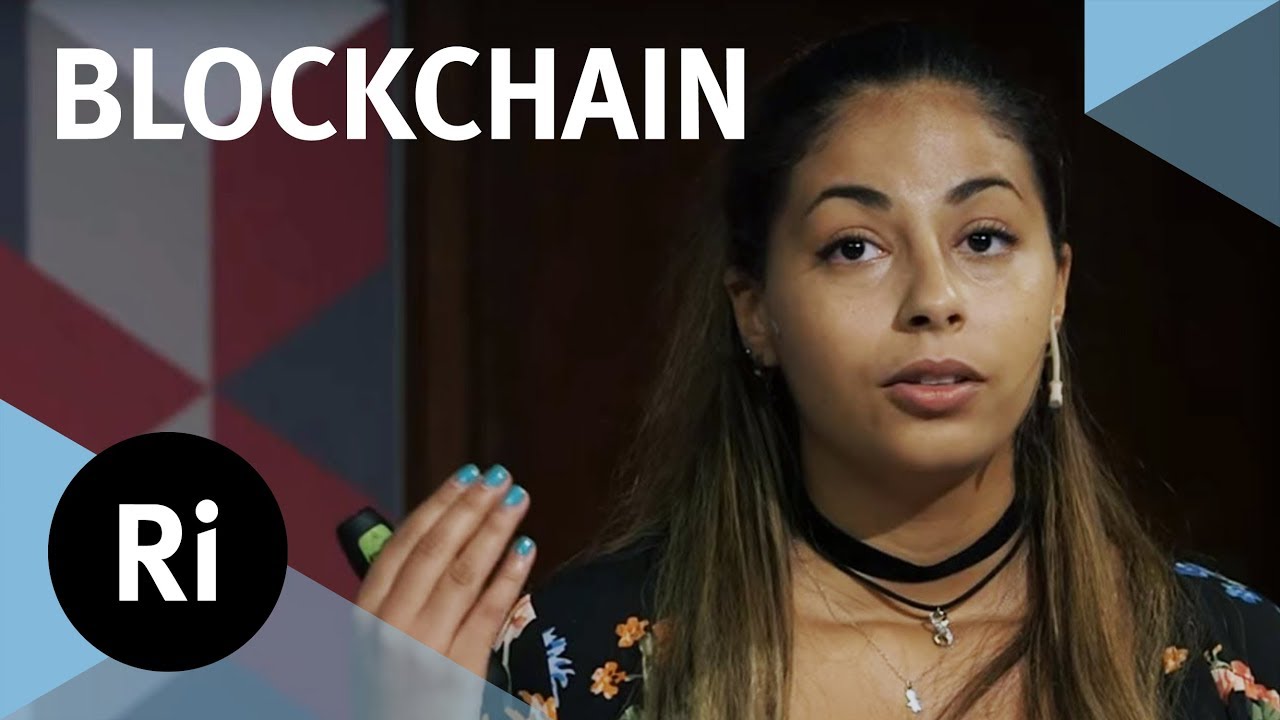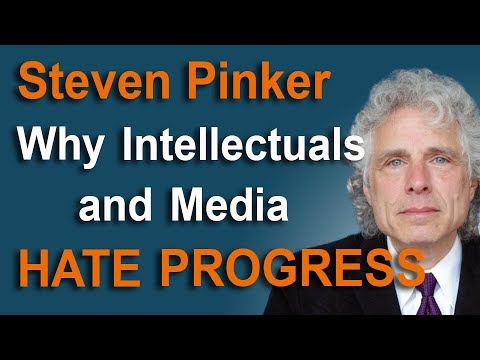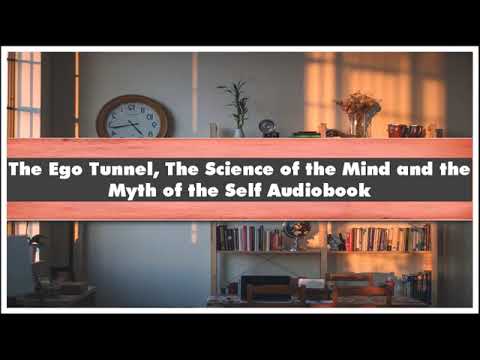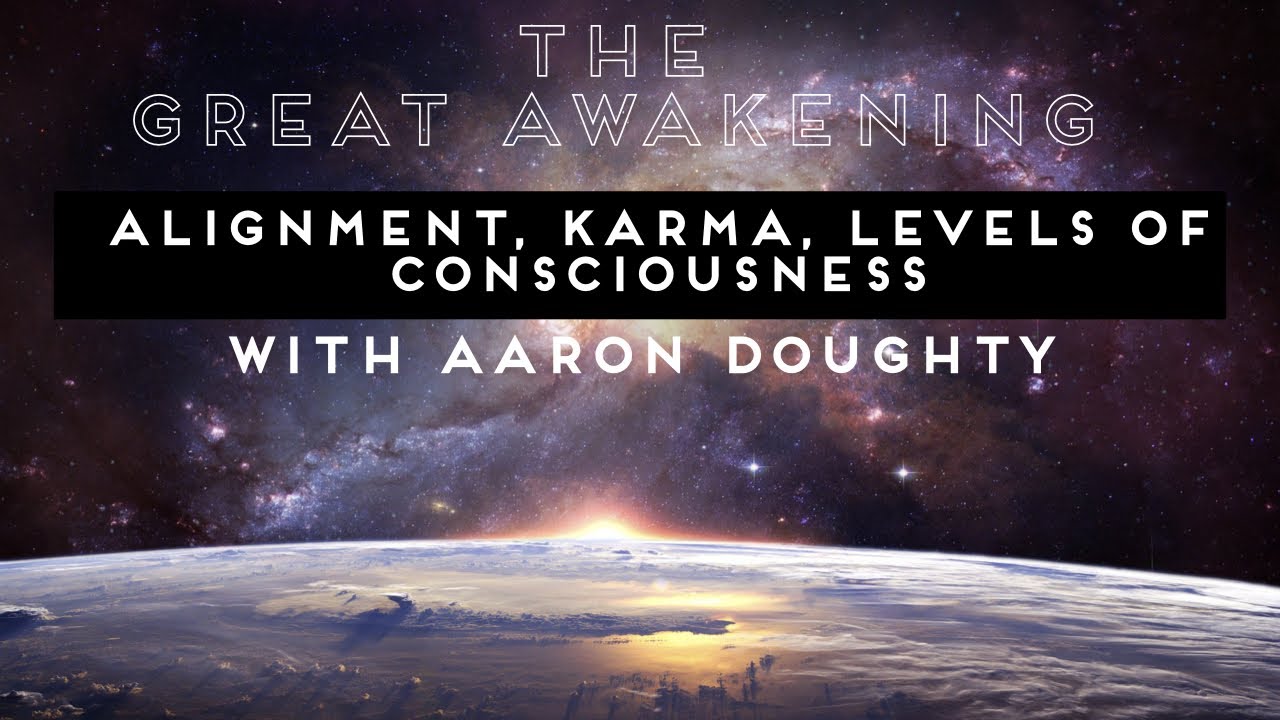The Royal Institution
How does blockchain work and has its usefulness been over or under estimated? John Domingue and Sajida Zouarhi show how blockchain is being implemented in a real-world setting.
Subscribe for regular science videos: http://bit.ly/RiSubscRibe
This event was jointly organised by the Ri and Embassy of France.
Blockchain, the technology that underpins cryptocurrencies such as Bitcoin, has an almost unlimited number of applications beyond finance. From digital identities to kidney transplants, blockchain technology solves the problem of intermediary trust between parties without a central authority.
Watch the Q&A: https://youtu.be/OzQwPMAvl5k
John Domingue is the Director of the Knowledge Media Institute at The Open University and the President of STI International, a semantics focused networking organization. He has published over 250 refereed articles (h-index 50) in the areas of semantics, the Web, and eLearning. His current work focuses on how blockchains (which underpins Bitcoin) can enhance educational value ecosystems and its relationship to Linked Data. He currently serves as Theme Leader for the UK’s National Institute of Coding; the OU representative to W3C; the Chair of the Steering Committee for the ESWC Conference Series, and on the Applied Ontology Journal and Journal of British Blockchain Association’s editorial boards. From January 2015 to January 2018 he served as the Project Coordinator for the European Data Science Academy which aimed to address the skills gap in data science across Europe.
Sajida Zouarhi is an Engineer and works as a Blockchain Architect at Consensys. She is also a Computer Science researcher and worked with a major Telecommunications Operator (Orange) during her PhD thesis in Grenoble about private data transmission over communication channels on complex systems. She is President of the eHealth and BlockchTain Think Tank and a technical advisor on the board of several Blockchain projects. As the founder of the Kidner Project, she collaborated with WHO to help prevent Kidney Trafficking using Blockchain technology. She is an international Hackathon Mentor and a hackathon organizer with the Blockfest that she co-founded in 2016 in France.
These talks and Q&A were filmed in the Ri on 24 September 2018.
—
A very special thank you to our Patreon supporters who help make these videos happen, especially:
Alessandro Mecca, Ashok Bommisetti, avraham chein, bestape, Elizabeth Greasley, Greg Nagel, Lester Su, Rebecca Pan, Robert D Finfrock and Will Knott.
—
The Ri is on Patreon: https://www.patreon.com/TheRoyalInstitution
and Twitter: http://twitter.com/ri_science
and Facebook: http://www.facebook.com/royalinstitution
and Tumblr: http://ri-science.tumblr.com/
Our editorial policy: http://www.rigb.org/home/editorial-policy
Subscribe for the latest science videos: http://bit.ly/RiNewsletter
Source




Late stage capitalism
it makes no sense to put diamonds or ur carkeys on a permission blockchain. they just could use a database for that and save the hassle.
in said cases there wont be one global source of truth and not everyone will trust it. because you need human interaction to put that thing on the blockchain in the first place and if that interaction is fraudulent than you have recorded that on the blockchain as well.
where is the 'white scientists' video?
blockchain is not much more than a glorified log file.
And as for the kidner thing, there is a much simpler solution, remove money incentives. Socialized national healthcare is a lot simpler and cheaper than this Rube Goldberg contraption.
And for medical data theft, who wants to buy it ? private insurers and lenders.
capitalism does not work anymore (being generous and assuming it ever actually did), let's add more …
LOL a load of gobbledegook designed to hide the fact that the central banks already own it and it is yet another move towards a one world banking system creating more debt slaves.
John Domingue looks like my software security prof. speaks just with the same quiet non enthusiastic tone as well.
Bill Gates invests in "Ethereum". To make vast amounts of money you need vast computing power, which means the normal person has no real chance. Who does have a chance are huge corporations, Google, Microsoft, even the NSA and in the UK GCHQ. Why do you think they want you to add your data to "The Cloud". The girl is telling you their intention… a huge con trick. Conventional currencies are failing and known to be false… this is simply an updated version. The reason the banks have robbed us all is because we did not understand "Fractional Reserve Banking", now that is more widely known about and we know who to blame some other "Plausible" con had to be invented. You can be sure that the same elite will once again end up with all the profits.
For encrypted computation you don't need something like blockchain, that would also work without.
<3
A shame those themes are presented in our times behind this famous desk where science history has been made.
What if I hate one of my siblings and refuse to unlock the tube when it's their turn to wash?
Not great, she could have at least explained the difference between Bitcoin and Ethereum, I bet the audience left more confused than they were before the lecture began
I am open minded and trying my hardest to be convinced but I am only seeing snake oil. I watched the whole thing as I thought that the Royal Institution had credibility that might enable me to see this blockchain piffle in a positive light. I am just more irked than before by how many foolish evangelists there are trying to solve other people's problems with promised wonder solutions. It is bullshit. None of these people work at the sharp end of real world problems, even simple real world things like retail. None come from a software engineering background, which is about solving real world problems for real customers for real businesses, not some farmer in Africa who needs to get one over the IMF. Charlatans. I mean that, I have tried to think otherwise and this is the final straw. If the RI can't present a case then it is bullshit. Back to SQL for me!!!
The "problem" with ALL this – is that it is COMPLEX. This means that it is or can get complicated. When things get complicated, the BEST course of action is to get back to BASICS. The more complex a "System" is – the more can go wrong with IT. So beware.
12:52 literally – a lot of people don't see, to understand what that means.
i wish this crypto currency is stopped forever. . this doesn't help everyone
A quick comment about Windrush, which he mentioned. One scenario went like this (I forget the numbers)
– you need to prove that you've been resident for 10 years
– easy, I registered for tax 15 years ago, you have all my records since
– no good, we delete tax records after 6 years
This isn't evidence of a need for block chain, it's evidence of an inhumane and unreasonable government.
I like Sajida's presentation but I'm totally flummoxed by the mention of blind computation. I send your computer xj45 and y3n6 and ask it to add them. If it doesn't decrypt how would it get the answer 2 plus 3 equals 5?
Will ALT coins benefit from Quantum Computers??
Like she has said in the video, the value of it depends on where you apply this technology and how. There are a lot of scams out there which could be prevented with blockchain technology, or improve justice. Think of people paying for things they haven't done or people victims of digital crimes. People paying for identity suplantation (credits, etc…). I think it can be applied to improve/save the life of much people. Unfortunately some companies can use the name or use the technology wrongly. Isn't it happening with AI?
I want everyone to completely own their own data. Imagine owning your birth certificate, licenses, medical records, etc. I'm afraid that we are not ready for that responsibility.
@SAJZ I`d like to hear your thoughts about blockchain performance. We've developed a few prototypes with blockchain platforms but it was just… crap. Long delays between calls mad our app too inefficient to show to the public.
Snake oil. Except for very specific possible use cases, I still haven't ANY real world added value.
good lecture but trust me block-chain solves NOTHING .only the fundamental properties of BITCOIN solves EVERYTHING
I started watching this video to learn a little about blockchain technology, but was instead treated to some fo the best sleep I’ve experienced in 2018. Nice coma inducing work.
i had to stop watching because 2 minute commercial
Ha! 'Without a central Authority' that's the tagline what they don't tell you is what happens when blockchain becomes mandatory to be a citizen of planet Earth
13:50 wrong. You do not use your public key to encrypt the message. You use your private key for that. Someone's public key is used to decrypt their previously encrypted message.
And sorry to both speakers. If I didn't know what blockchain was I'd be very confused by their description. Btw, if you want to understand it, watch this video, this is by far the best explanation of blockchain you can find:
https://www.youtube.com/watch?v=bBC-nXj3Ng4
Lastly, I want to say what seems to have been missed is that the best application of blockchain could be enabling us to establish a secure digital voting system that allows proof of votes and anonymity at the same time.
Language is also important here. “Ledger” and” transaction” can be confusing for some people – especially because it has a financial connection (e.g general ledger) It should rather just be referred to as a record. From a pure academic point of view the terms ledger and transaction can be used, but it’s not practically interpreted that way.
Blockchains are (in a way) trying to technologically emulate a trust model – ie digitized trust. Things like ownership and contracts are represented through cryptographic means. The philosophy is sound, but we are far from creating an end-to-end ecosystem which allows all participants to engage in this model.
Huge problems with scalability and the impossibility to restore or change your private key are what make me very skeptical of this technology. Plus the kind of utopian libertarians this technology attracts.
Middle men that are acting for pure profit are bad, but that's why we should have maximum competition, open markets, and laws and governments to regulate their greed.
Sajida was really bad.. i cant imagine she really writes code or contribute big time. she just rehashed what the first guy said and pitched her mediocre project!
Interesting discussion. Here's a blockchain expert in Australia giving her take on where it's at right now https://www.youtube.com/watch?v=zhE_EOAQe08
I'm still not convinced the block chain is completely trustworthy. For example, how can we be sure the hash file is severed if something is changed, and what are the ramifications if all of the linked lists are dependent upon a singular source being correct? What about altering memory locations, or even computer malfunctions? I'm still very skeptical.
Worth watching this video https://www.youtube.com/watch?v=sn3IEOLBg0g